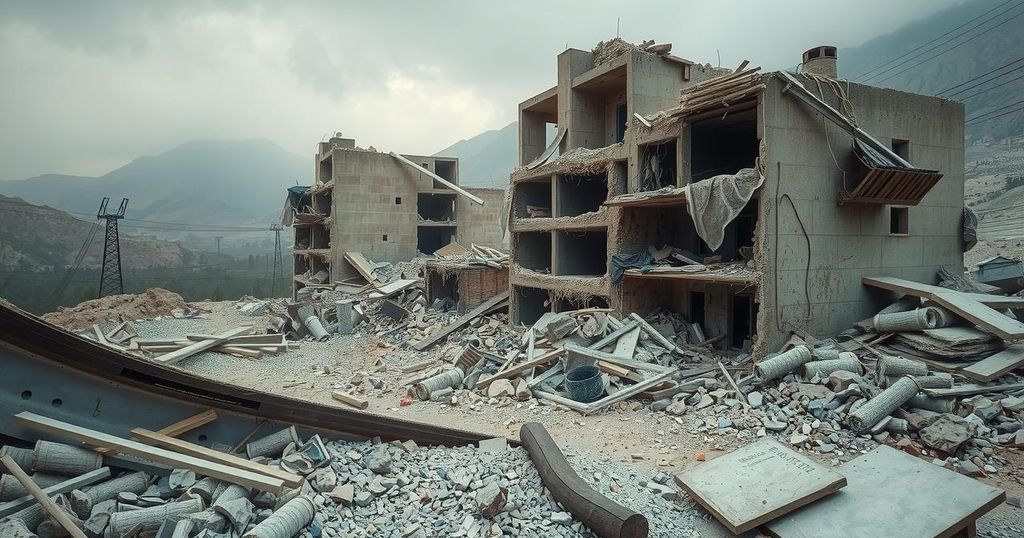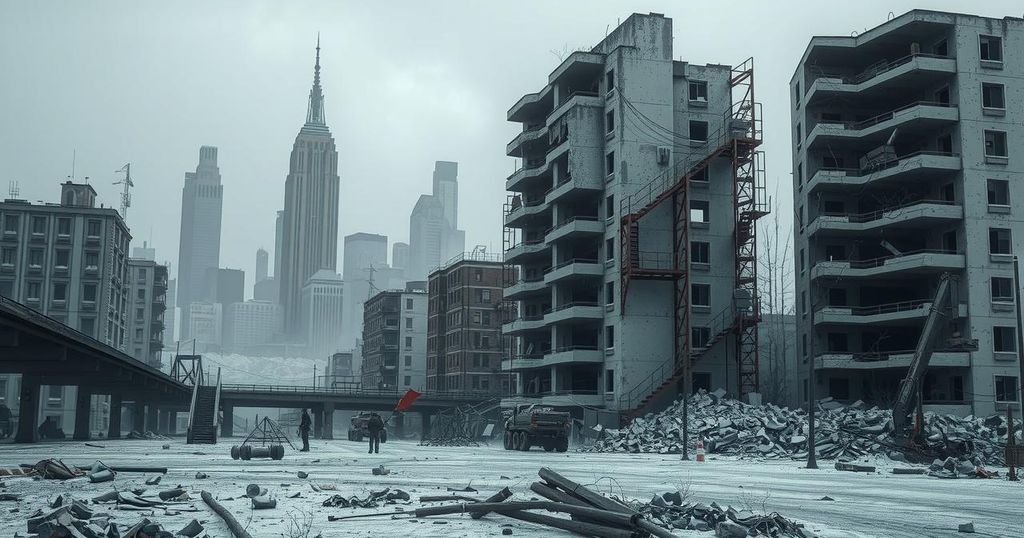U.S.-Ukraine Diplomatic Talks Progress in Saudi Arabia Amid Ongoing Conflict
Delegations from the U.S. and Ukraine are engaged in talks in Saudi Arabia focused on addressing the Russia-Ukraine conflict. Ukrainian officials highlight commitments to national security and just peace while U.S. representatives express cautious optimism. The discussions occur amid ongoing military actions in Ukraine, urging increased international pressure on Russia. The complexities of negotiating a ceasefire and resolving issues like energy attacks add challenges to the peace process.
Delegations from the United States and Ukraine are currently engaged in discussions in Saudi Arabia aimed at resolving the ongoing Russia-Ukraine conflict. Ukrainian Defense Minister Rustem Umerov has confirmed the talks, which focus on protecting energy infrastructure and critical sites due to continued hostilities. This diplomatic effort is facilitated by the administration of former U.S. President Donald Trump, seeking a framework for peace leading to anticipated meetings between Russian and Ukrainian representatives.
Minister Umerov underscored Ukraine’s dedication to ensuring a “just peace” while enhancing national security. He stated on X, “We are implementing the President of Ukraine’s directive to bring a just peace closer and to strengthen security.” Meanwhile, U.S. Special Envoy Steve Witkoff expressed cautious optimism, noting that Russian President Vladimir Putin may be open to peace dialogues. He remarked, “I just don’t see that he wants to take all of Europe.” This overarching discussion seeks to promote common ground amid ongoing instability.
On the ground, the situation in Ukraine remains dire, as recent drone strikes have resulted in multiple casualties, including seven fatalities due to Russian attacks. President Volodymyr Zelenskyy has urged Western allies to increase pressure on Moscow, particularly after a drone strike in Kyiv claimed three lives, including that of a young child. Reports indicate that Russia launched 147 drones, with Ukraine intercepting 97 of them over multiple regions.
Furthermore, President Zelenskyy emphasized the alarming increase in Russian strikes, revealing that Ukraine faced over 1,580 aerial bombings within a week. He called for more vigorous international measures to curtail hostilities. Meanwhile, Russia’s Ministry of Defence claimed to have intercepted multiple Ukrainian drones during ongoing military operations.
Former President Trump indicated that while de-escalation efforts are in progress, the situation is complex. In a recent interview, he highlighted that building and maintaining strong relationships with both President Putin and President Zelenskyy is essential for attaining peace. Although Trump attempted to broker a ceasefire, the subsequent agreements have not met lasting expectations, with both sides accusing each other of continued strikes on energy facilities.
Kremlin spokesperson Dmitry Peskov acknowledged that negotiations remain preliminary, emphasizing the challenges ahead. Russia aims to revisit the 2022 grain deal, which provided the means for safe transport of Ukrainian agricultural exports. Despite withdrawing from the agreement in 2023, Russia contends that the West did not meet its commitments regarding sanctions relief.
Senator Grigory Karasin, leading the Russian delegation, expressed tempered expectations for the discussions yet remained hopeful for incremental progress. He stated, “We are going with the mood to fight for the solution of at least one issue,” indicating a proactive approach to reaching an agreement.
The ongoing U.S.-Ukraine talks in Saudi Arabia seek to address critical security concerns amid the fraught backdrop of the Russia-Ukraine conflict. Ukrainian officials have reaffirmed their commitment to achieving a just peace, while U.S. representatives express guarded optimism about the potential for diplomatic resolutions. Nevertheless, the escalation of military actions and the current humanitarian toll in Ukraine underscore the urgency of effective and sustained international engagement and pressure. As negotiations proceed, the complexities surrounding energy infrastructure protection, ceasefire agreements, and the broader geopolitical landscape remain pivotal in determining future outcomes.
Original Source: www.aninews.in








Post Comment